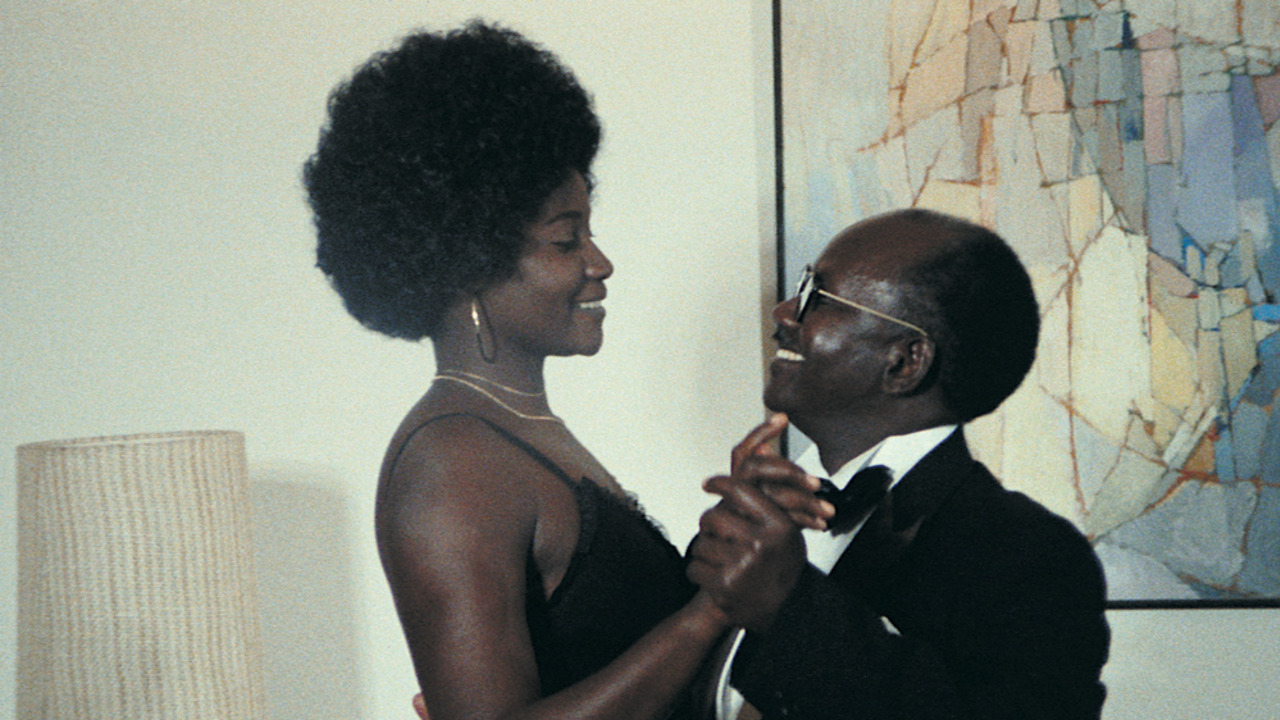
Toward the end of her recently republished autobiography, “My Country, Africa,” the political organizer Andrée Blouin reflects on the failures of the independence movements that galvanized so many Africans, including herself, to fight their colonial oppressors. A crucial subject of John Grimonprez’s critically-acclaimed documentary “Soundtrack to a Coup d’Etat,” Blouin, served as the chief protocol of Patrice Lumumba’s nascent government in the Congo. Her role gave her access to both working class people, whose political force propelled the liberation strategies to success, as well as members of the new ruling class, who were statespeople tasked with filling newly formed power vacuums.
“As I look back I think the hardest thing for us to bear during the long struggle for viable statehood has been the knowledge that it is not the outsiders who have damaged Africa most,” Blouin writes, “but the mutilated will of the people and the selfishness of some of our own leaders.” These politicians often prioritized their own economic comfort over that of their constituents, and contributed to a precarious post-independence landscape as a direct result.
Many African filmmakers drew a similar set of conclusions in the 1970s, and spent the decade making works that addressed the realities of public officials who, in Blouin’s words, sold out “their black brothers and sisters” in service of neocolonialism. Films like Ousmane Sembène’s “Xala” (1975) and Souleymane Cissé’s “Baara” (1978) meditate on the disappointments littering post-independence African nations, and assess the weight of unrealized expectations on their people. They exist within the same family of work as Ayi Kwei Armah’s melancholic 1968 novel “The Beautyful Ones Are Not Yet Born,” in which the Ghanaian writer considers the rugged terrain of the Gold Coast country in the afterglow of independence.
In that text, an unnamed narrator struggles to make an honest living as a railway clerk. He watches his nation languish as former classmates, now public servants in Kwame Nkrumah’s government, shamelessly fill their coffers with bribes. Whereas Armah’s novel operates in the sorrowful register of existentialism, Sembène and Cissé’s films revel in the barbed parameters of comedy and trade as they visit comeuppance upon their corrupt leaders. Both directors rely on a kind of caustic humor to uncover the class struggle that has always complicated the colonial one.

“Xala,” which Sembène adapted from his 1973 novel of the same name, follows El Hadji Abdoukader Beye (Thierno Leye), a corrupt Senegalese businessman cursed with impotence after embezzling tons of rice in order to secure money to marry his third wife. The film treats El Hadji’s erectile dysfunction, and his bumbling quest to resolve it, as a metaphor for post-independence leaders with shallow commitments to liberatory politics. Instead of prioritizing their working class constituents, these politicians abandoned or sold them out.
Sembène captures this betrayal in the film’s efficient opening sequence, during which a group of Senegalese leaders, including El Hadji, expel white French delegates from the country’s chamber of commerce. Dressed in traditional wear and moving with a studied solemnity, the men remove evidence of Europe from the office. Out go the white busts, hunting boots and the envoys tasked with managing affairs on behalf of the empire. “It is the sons of the people, who now lead the people, on behalf of the people,” says a never-identified narrator through voiceover. In theory, this transition inaugurates a chapter of enfranchisement, but in the next scene the Senegalese businessmen are in suits, and the white men return with briefcases full of money as bribes. The African leaders abandon Wolof for French; and the beginning of Senegal’s new economic future looks a lot like its old one.
El Hadji’s impotence becomes a source of great embarrassment for him, and he journeys around town trying to resolve it. He repeatedly insists that money is no object when it comes to reclaiming his manhood. Through El Hadji’s obsession with masculinity, Sembène also explores how the patriarchy shaped postcolonial nations by reinforcing neocolonialism. (It’s an observation that Blouin also makes in her autobiography, especially when it came to organizing in male-dominated spaces.) Some of the most affecting scenes in “Xala” involve confrontations between El Hadji and his daughter Rama (Myriam Niang). The young woman initially refuses to attend her father’s wedding to his third wife because she considers polygamy hypocritical. Offended by Rama’s audacity and, let’s be honest, rhetorical fearlessness, El Hadji slaps her and issues a chilling reminder: “It is people like your father who kicked out the colonizers and liberated this country,” he says to her. “Never forget I’m still in charge in this house.” The house, in this case, is both the physical space where this confrontation takes place as well as the broader nation-state. How ironic that those whose enlightened views of liberation do not extend to the home.

Men make similarly violent claims and patriarchal decisions in Souleyman Cissé’s evocative 1978 film “Baara.” The film opens with a Malian young porter by the name of Balla Diarra (Baba Niare) helping a woman whose husband has just kicked her out of the home. Like Rama’s mother (Seune Samb) in “Xala,” this woman is the man’s first wife and suffers the brunt of his disrespect. In the previous scene, her husband not only thows her belongings on the street, but also threatens to beat her with his sandal. This moment of intrafamily chauvinism unspools into a broader consideration of the patriarchy at work.
“Baara” follows Balla Diaara as he starts working for a factory managed by Balla Traoré (Bubukar Keita) and owned by Sissoko (Balla Moussa Keita, who later starred in Cissé’s 1987 masterpiece “Yeleen”). The drama surrounding these three constitute the bulk of the film: Diarra struggles to make ends meet as a freelance porter and then factory worker; Traoré navigates the challenges of applying his newly acquired European intellectualism to his professional life and Sissoko juggles increasing debt. What’s notable about the latter two men is how their powerful positions and refined point of views do not extend to their marriages. Since returning from Europe, Traoré forbids his wife from working and Sissoko is abusive despite relying on his spouse Djeneba to bail him out of debt. At one point, Djeneba, sketched similarly to Rama, asks her husband to consider taking out his anger on a man.
Both “Xala” and “Baara” dexterously weave their two principal threads — patriarchy and neocolonialism — taking care to show how they inevitably reinforce each other. Similar to Blouin, who was able to diagnose the issues plaguing liberation movements, it is the women in Sembène and Cissè’s respective works who speak the most clarifying truths and reveal that it’s useless to replace European colonialism — built on foundations of patriarchy — with an African system that idolizes similar standards.
What’s particularly exciting about Sembène and Cissè’s films is how the director’s counter this tension with images showcasing the beauty and power of people within postcolonial cities like Dakar (“Xala”) and Bamako (“Baara”). In both films, the rich businessmen try to get rid of or hide the poor and working class people. “Xala” has a particularly jarring scene of a public official calling the police to essentially the unhoused people loitering near his office.
Still, there are moments of organizing and resilience. The cast out residents in “Xala” return to the city and organize among themselves, discussing in detail the hardships faced because of the newly installed government. While the factory workers in “Baara” plan unionization efforts despite protestations from the big boss. They discuss working fewer hours and getting paid more because it feels like they are always waiting for the first of the month. But these workers don’t only talk, they act too. Both “Xala” and “Baara” end on rousing notes — scenes in which the people, dissatisfied with their new leaders, inevitably fight back.
IndieWire’s ‘70s Week is presented by Bleecker Street’s “RELAY.” Riz Ahmed plays a world class “fixer” who specializes in brokering lucrative payoffs between corrupt corporations and the individuals who threaten their ruin. IndieWire calls “RELAY” “sharp, fun, and smartly entertaining from its first scene to its final twist, ‘RELAY’ is a modern paranoid thriller that harkens back to the genre’s ’70s heyday.” From director David Mackenzie (“Hell or High Water”) and also starring Lily James, in theaters August 22.



